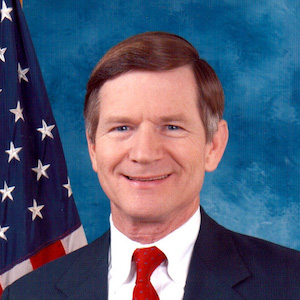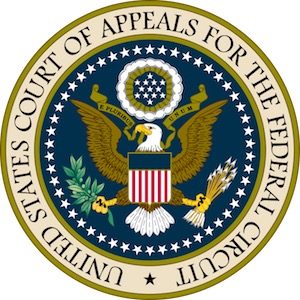Architect of America Invents Act announces retirement from House
 Longtime Texas Representative Lamar Smith (R-TX), chairman of the House Committee on Science, Space, & Technology, will be retiring from his duties on Capitol Hill and will not seek reelection for another term of service. Smith, a former Chairman of the House Judiciary Committee and powerful member of the Republican leadership, will leave a void. His retirement marks the end of a 30-year tenure of public service and will immediately create a leadership void on the House committee responsible for overseeing our nation’s science and space policies.
Longtime Texas Representative Lamar Smith (R-TX), chairman of the House Committee on Science, Space, & Technology, will be retiring from his duties on Capitol Hill and will not seek reelection for another term of service. Smith, a former Chairman of the House Judiciary Committee and powerful member of the Republican leadership, will leave a void. His retirement marks the end of a 30-year tenure of public service and will immediately create a leadership void on the House committee responsible for overseeing our nation’s science and space policies.
Smith was first sworn into office at the U.S. House of Representatives in 1987 and has served the 21st congressional district of Texas, which includes areas of Austin and San Antonio and parts of the Texas Hill Country, since that time. During his time in Congress, Smith has been involved with the sponsorship of legislation related to technology including the Stop Online Piracy Act (SOPA) and the STEM Education Act of 2014. Many readers of this blog will recall that Smith was an original co-sponsor to the Leahy-Smith America Invents Act (AIA) of 2011, along with Democratic Representative Patrick Leahy (D-VT). That piece of legislation created the Patent Trial and Appeal Board (PTAB), an Article I executive branch tribunal which is being challenged on constitutional grounds before the U.S. Supreme Court in Oil States Energy Services, LLC v. Greene’s Energy Group, LLC.
Invention details need not be public to be prior art under AIA
 The United States Court of Appeals for the Federal Circuit recently issued a major decision interpreting provisions of the America Invents Act (AIA), specifically the AIA on-sale bar provisions. In Helsinn Healthcare S.A. v. Teva Pharmaceuticals USA, Inc., the Federal Circuit panel of Judges Dyk, Mayer and O’Malley determined: “after the AIA, if the existence of the sale is public, the details of the invention need not be publicly disclosed in the terms of sale” for the sale to be invalidating. In so reaching this ruling, the Federal Circuit has largely done away with the belief that the AIA created some kind of “safe harbor” for sales that did not disclose the details of the claimed invention.
The United States Court of Appeals for the Federal Circuit recently issued a major decision interpreting provisions of the America Invents Act (AIA), specifically the AIA on-sale bar provisions. In Helsinn Healthcare S.A. v. Teva Pharmaceuticals USA, Inc., the Federal Circuit panel of Judges Dyk, Mayer and O’Malley determined: “after the AIA, if the existence of the sale is public, the details of the invention need not be publicly disclosed in the terms of sale” for the sale to be invalidating. In so reaching this ruling, the Federal Circuit has largely done away with the belief that the AIA created some kind of “safe harbor” for sales that did not disclose the details of the claimed invention.
After first determining that a sale had occurred, the Federal Circuit turned to the language of the statute and the legislative history of the AIA. “We next address whether the AIA changed the meaning of the on-sale bar under 35 U.S.C. § 102 so that there was no qualifying sale as to the ‘219 patent,” Judge Dyke wrote.
06.26.17 | Federal Circuit Cases, Patent Issues | Gene Quinn
Inter Partes Reexam and the Post Grant Dead Zone
 On July 24, 2012, the Patents Post Grant blog published an interesting article titled Higher Patent Reexamination Threshold Suffers from SNQ Hangover. In the article, Scott McKeown, a partner with Oblon, Spivak in the firm’s Post Grant Patent Practice Group, wrote:
On July 24, 2012, the Patents Post Grant blog published an interesting article titled Higher Patent Reexamination Threshold Suffers from SNQ Hangover. In the article, Scott McKeown, a partner with Oblon, Spivak in the firm’s Post Grant Patent Practice Group, wrote:
A random review of 80 requests filed under the new Reasonable Likelihood of Prevailing (RLP) standard reveals over 25 requests that were either partially (or even fully denied by examiners) [sic]. Compared to the prior grant rate of close to 95%, it would seem the new “higher standard” is having Congress’ desired effect.
Based on this sampling by McKeown, it seems that the new standard is indeed having an effect. McKeown goes on to explain that if you file an inter partes reexamination request and it is denied, you can always learn from what the examiner stated and resubmit, but that only applies as long as there is time. Inter partes reexamination will go the way of the dinosaurs on September 16, 2012. McKeown writes: “Those IPX filers that are in parallel litigation, and have their IPX requests denied closer to the September deadline, may soon be forced into some very unfavorable positions.”
07.24.12 | posts | Gene Quinn
Next Wave of AIA on Patent Exam Starting Oct. 2, 2012
 By now you have certainly heard about the most revolutionary change to the U.S. patent laws since at least 1952, and most likely since the inception of the first patent laws in the U.S. in 1790. The America Invents Act (AIA) is poised to change patent practice from the ground up. The bill was signed into law by President Obama on September 16, 2011, and some minor provisions went effective immediately, or nearly immediately.
By now you have certainly heard about the most revolutionary change to the U.S. patent laws since at least 1952, and most likely since the inception of the first patent laws in the U.S. in 1790. The America Invents Act (AIA) is poised to change patent practice from the ground up. The bill was signed into law by President Obama on September 16, 2011, and some minor provisions went effective immediately, or nearly immediately.
The next wave of changes comes online on September 16, 2012, and the United States Patent and Trademark Office is feverishly working on multiple final rules packages that will be required for the implementation of that next wave of changes. So far, the only one that has been released is the final rules package relative to third-party submissions of prior art during prosecution. See USPTO Publishes Final Rule on Preissuance Submissions.
07.20.12 | America Invents Act, Patent Bar Exam, USPTO | Gene Quinn
Top 5 Patent Law Blog Posts of the Week
 Today we continue our weekly installment highlighting the best of the patent blogosphere from the past week. If there are any patent blogs you think should be highlighted by our Top 5, please comment on this post and we’ll check them out.
Today we continue our weekly installment highlighting the best of the patent blogosphere from the past week. If there are any patent blogs you think should be highlighted by our Top 5, please comment on this post and we’ll check them out.
1) Whitehouse.gov: Help Us Shape Our Strategy for Intellectual Property Enforcement – This post from The White House Blog was written by Victoria Espinel, U.S. Intellectual Property Enforcement Coordinator. The purpose is to announce the Executive Office of the President’s newest initiative to develop a “new strategy of intellectual property enforcement”. Public comments on how to efficiently combat intellectual property infringement are being requested for this Strategy. For more info, click here.
2) Patents Post-Grant: Enhanced Patent Reexamination Speed Coming Soon? – This post from Oblon Spivak’s Scott McKeown discusses how the reduction in incoming requests and how these new options for contested proceedings will free up much of the Central Reexamination Unit’s examiner’s time. As such, this post suggests ex parte patent reexamination filings could potentially benefit from the newly available bandwidth.
3) Patently-O: Supreme Court Grants Cert in Already v. Nike – This post reports on Already, LLC dba Yums v. Nike, Inc., No. 11-982, and how the Supreme Court’s grant of certiorari in this trademark law matter could impact patent litigation.
4) Patent Docs: USPTO Takes Next Step Towards Cooperative Patent Classification System – This post shares the USPTO’s announcement in the Federal Register that on July 10, 2012, it will be hosting a Cooperative Patent Classification (CPC) External User Day event (77 Fed. Reg. 37879). During the event, the USPTO will provide an overview of the CPC, a new patent classification system being jointly developed by the USPTO and the European Patent Office (EPO).
5) IP Watchdog: Practice Before the Patent Trial and Appeal Board – This post discusses the impact of the September 16th implementation of the new post grant review procedures on law firms and the USPTO alike. The post explains the new Patent Trial and Appeal Board and its duties, the hiring of new Administrative Patent Judges “at an astounding rate”, and what the new proposed trial rules will mean to patent lawyers.
06.29.12 | America Invents Act, posts, Reexamination, USPTO | Mark Dighton


No Comments
11.27.17 | America Invents Act, Patent Issues, Patent Reform | Gene Quinn